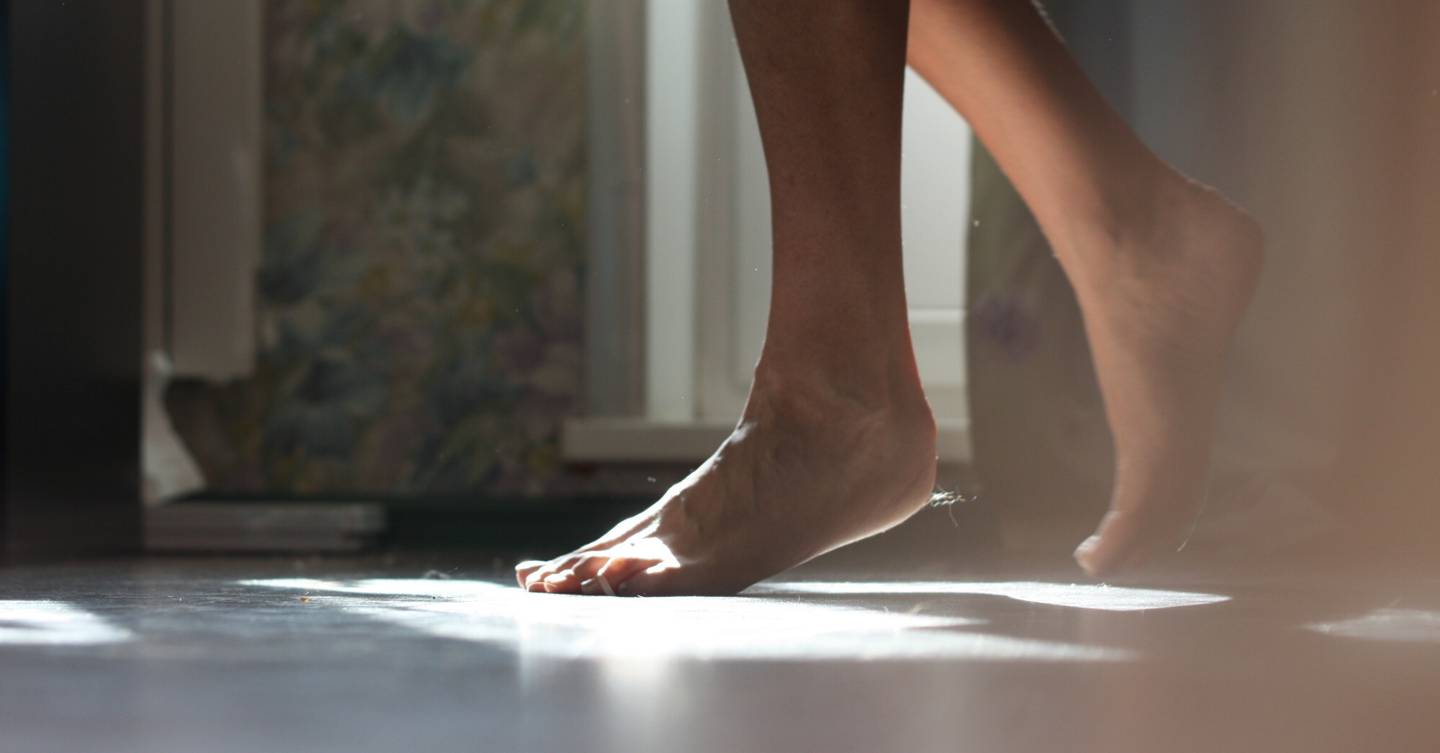We lust after the latest Gucci loafers and have all been saving for a pair of The Row biker boots, but according to the latest research, we should think about ditching shoes altogether in favour of going barefoot. The study, published in world-renowned medical and science journal Nature, found that wearing shoes changes our sensitivity to the ground, affecting balance and the force put on our joints, and notes that there could be potential future consequences for our whole bodies.
If you think about it, shoes are a relatively new phenomenon, only dating back to the Industrial Revolution. In fact, even the most primitive forms of footwear only made their first appearance a mere 40 thousand years ago. Before this, humans would walk, run and hunt barefoot, relying on calluses (the thick, hard areas of the skin, usually on the balls and heels of feet) to protect from the rough ground below. Of course, society now views calluses as unsightly, devising a number of treatments and products to remove and prevent them from forming, but according to the study, “cushioned footwear lowers rates of loading at impact but increases force impulses, with unknown effects on the skeleton that merit future study.”
Physiotherapist Simon Purton at Soho Physiotherapy agrees; “Walking barefoot allows the foot to expand and the toes to spread, especially the big toe, which aligns the big toe tendons to better support the medial arch of the foot. Also, going barefoot provides immediate proprioceptive bio-feedback, which allows for better saving reaction and control. For example, a gymnast would never wear soft spongy trainers as they would lose significant control and get injured really quickly.”
Simon has a number of clients who suffer from plantar fasciitis, inflammation of the thick band of tissue along the bottom of feet that connects the heel to the toes, which can be a result of wearing certain types of shoes; “This condition can be alleviated by going barefoot, which allows better control of the pitch and roll of the foot and greater strength through the arch of the foot. The other benefits are activation of the core muscles through the lower limb and trunk and better control when walking and running, reducing hip and lower back problems.”
While it all sounds great in theory, going barefoot isn’t an option for many, especially city dwellers for whom it may be dangerous, so it’s important to choose the correct shoes that won’t cause long-term damage. “The best shoes are flexible shoes that allow you to feel the floor, have a wide front to allow the toes to expand and little or no heel so that there is little heel raise and foot is positioned flat on the floor when in neutral,” says Simon. “We should avoid shoes with lots of cushioning and dress shoes that squash the toes and compress the foot. Obviously, wearing them once in a while is fine, I’m talking about daily use.”
Looking for more ways to improve your overall wellness? Check out these easy tips for a great night’s sleep, the best ways to manage anxiety and the tried-and-tested at-home yoga apps.
